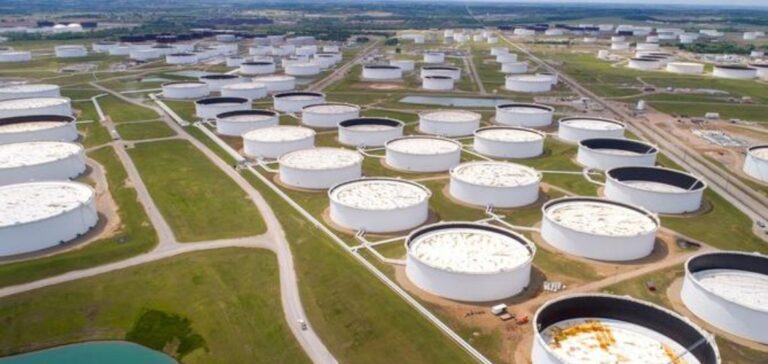Recent data released by the U.S. Energy Information Administration (EIA) show a sharp contraction in U.S. crude oil inventories for the week ending July 12. These commercial reserves fell by 4.9 million barrels, a significant drop compared with analysts’ forecasts of a decline of around one million barrels. Inventories currently stand at 440.2 million barrels.
At the same time, gasoline reserves increased significantly. Contrary to expectations of a decrease of 1.2 million barrels, they rose by 3.3 million barrels. Inventories of distillates also rose by 3.5 million barrels, as refinery operations resumed following the disruptions caused by Hurricane Beryl in Texas.
Impact on refineries and the market
According to Andy Lipow, of Lipow Oil Associates, this rise in refined products could have a bearish effect on the futures market. Such an abundance of reserves is likely to reduce the margins of refineries, which saw their refining capacity utilization rate rise to 93.7%, a slightly lower figure than the previous week.
In parallel with the fall in commercial crude stocks, Strategic Petroleum Reserves (SPR) rose by 600,000 barrels to 373.7 million barrels. This increase is in line with the US government’s strategy of gradually replenishing these reserves after using them to relieve oil prices. Since July 2023, over 26 million barrels have been bought back by the government.
Influence on Prices and Production
US oil production remains high, at 13.3 million barrels per day. On the other hand, refined products delivered to the US market rose slightly, by an average of 1.2% over the last four weeks.
The EIA figures influenced oil prices, which were already on the rise following attacks on tankers in the Red Sea by Houthi rebels. At 15:40 GMT, the price of a barrel of Brent crude oil for September delivery was up 1.39% at $83.73. Meanwhile, West Texas Intermediate (WTI) for August delivery was up 2.18% at $80.76 a barrel.
The situation on the US oil market remains complex, with significant fluctuations in inventories and prices, influenced by geopolitical and climatic factors. The Biden administration continues to adjust strategic reserves to stabilize prices at the pump, particularly during periods of high demand such as the summer vacations.
Experts are closely monitoring these developments, anticipating adjustments in production and storage strategies, as well as their potential impact on global energy markets.






















